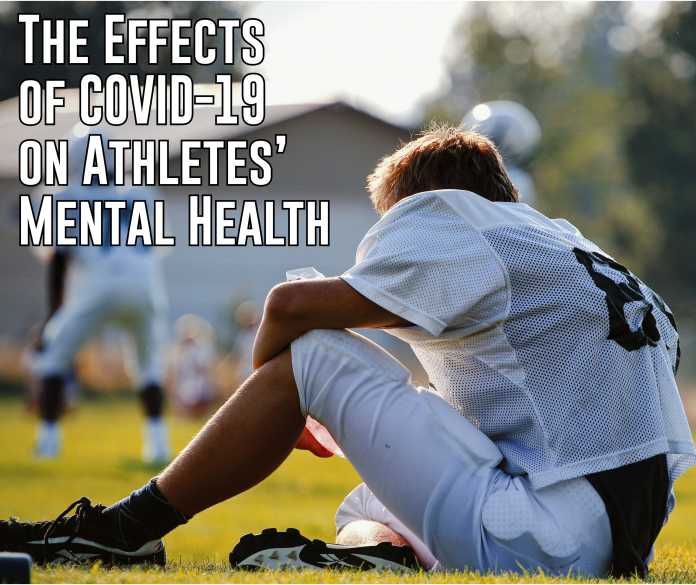The Effects of COVID-19 on Athletes’ Mental Health
In Georgia, football is king. Some of the best high school football teams in the nation are in the state of Georgia. Fans come together with excitement to watch the high school athletes take the field. Many games are even televised.
Although many athletes love the excitement and adrenaline that comes with playing, there can also be feelings of intense pressure. This pressure is one of the many stressors that contribute to mental health issues in athletes. According to physicians and researchers from the University of Wisconsin School of Medicine, about 68% of high school athletes struggle with anxiety and/or depression. Mental Health Awareness day was Oct. 10, so it is a great time to discuss how mental health issues affect so many of our student-athletes.
High school sports give students a platform to develop a work ethic, make friends, learn respect, and so many other important life lessons. There are many great things that come out of high school athletics; however, the intense pressure to perform at a high level, among other things, can be a cause of stress and, for many students, mental health issues. Balancing schoolwork, a social life, family, and performing well in a sport is a lot to manage for a teenager.
Another key factor in the rise of mental health issues in student-athletes is the intensity of high school sports. Many athletes start specializing in one sport at a young age. They not only play competitively during that sports season, but also practice and compete year-round, sometimes on multiple teams. This creates better athletes and more competitive sports at the high school level, but can also cause students to have severe performance anxiety.
On top of struggling with the intensity, student-athletes now have to deal with constant changes because of COVID-19. Students were sent home, and sports seasons were cut short. There was a huge lifestyle change that came with the pandemic, and it left many students isolated, scared, and lonely.
Although the situation is looking up and sports are being played, this season is different than in the past. New safety precautions and the fear of getting sick only adds to the stress. It is so important that we are looking after our athletes and their mental health.
Fortunately, the stigma around mental illness is changing. Both high schools and colleges are implementing more ways to help students who are struggling.
Many professional athletes have also been helping end the stigma by speaking out about their struggles. Michael Phelps, a U.S. Olympic swimmer; Justin Duchscherer, a professional baseball pitcher; Ricky Williams, an NFL star; and many other professional athletes have spoken up about their personal struggles with mental illness. These stories help younger athletes realize they are not alone and that it is okay to seek help.
It is important that we continue to help end the stigma and always keep an eye out for our students-athletes and their mental health.
Written by: Megan DiLeo













